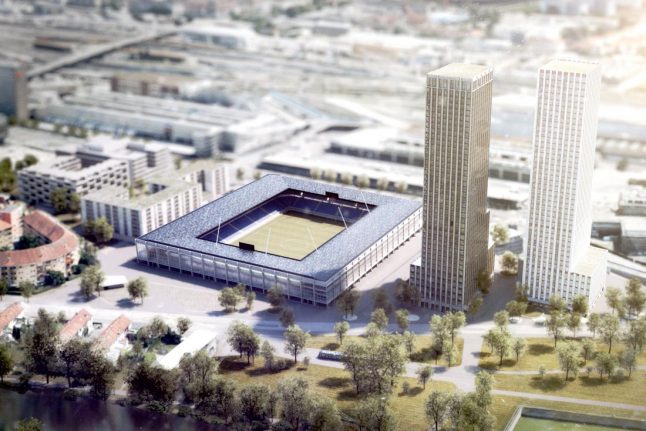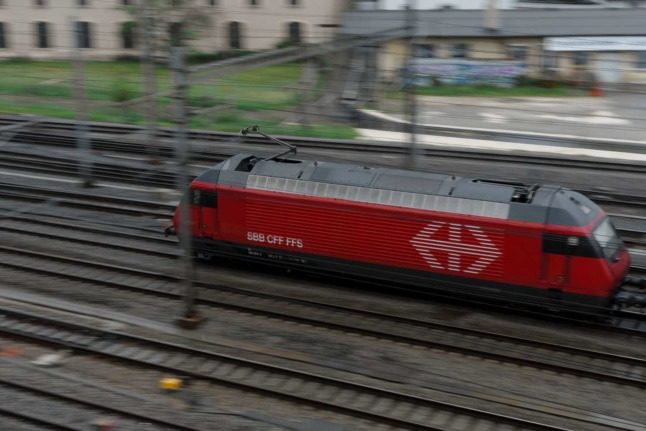Zurich authorities have been trying to rebuild Hardturm stadium in Zurich West ever since it was demolished to make way for a newer state-of-the-art complex 15 years ago.
But the project has been dogged by legal problems and public complaints ever since, not least because the empty plot has been transformed by neighbours into a space with everything from vegetable gardens, food markets, a skate park, climbing wall, live music and more.
This organically created public space is now under threat as on Wednesday Zurich Parliament voted (73 votes in favour, 37 against) to approve the construction of the new and compact 18-000 seat venue.

Photo: Facebeook/Stadion Brache
Zurich authorities have agreed to grant a surface area right of 1.2 million francs annually to private investors including Credit Suisse’s real estate branch and HRS Real Estate AG.
It’s perhaps the additional construction of three residential buildings, including two skyscrapers, that’s already causing a bigger stir among residents, who took to the streets with banners and slogans on Wednesday to voice their disapproval.
“Big mobilization this afternoon against the stadium and high-rise project #Hardturm Yes to football but the plot remains thanks to all who joined the #StadionNein protest and sang so beautifully” , stadium opponent Stadionbrache wrote when posting the above video.
The two towers will each be 137 metres high, taller than Zurich’s biggest skyscraper The Prime Tower (126 metres tall) and house 596 luxury flats intended to increase the stadium’s revenue.
Local association IG Freiräume Zurich, which brings together supporters of the Stadionbrache plot (Fallow Stadium in English), have already voiced their disapproval at the motion and come out “in defense of green spaces”.
For them it's essential to protect a “vibrant” communal space that brings people together, a real success story of urban planning.
Around 50,000 people use this public “oasis” each year, they say. Find out more about their cause here.

Residents of neighbouring Höngg – part of district 10 in Zurich – don’t want two massive skyscrapers to spoil their hilltop view either.
Zurich’s socialist party members have opposed Wednesday’s parliamentary ruling, calling for more social housing instead of luxury homes and asking for the matter “to go to a public vote”, Swiss daily Le Temps reported.
Proposals by Credit Suisse and HRS Real Estate AG to develop rooftop solar panels, shops, workshops and kindergartens as part of the stadium complex have fallen on deaf ears among residents.
The building of Grasshopper’s new Hardturm stadium was first blocked in 2003 due to opposition from residents and then again in 2013, when the public refused to let a publicly funded 216 million project go ahead, as spending was considered disproportionate for a project that included just 154 housing units.
Zurich’s two football teams currently play at the new Letzigrund stadium, also used for rock concerts and athletics.
With a capacity of 25,000 spectators for football, it opened in 2007 but it is viewed as a less than ideal venue for the sport.



 Please whitelist us to continue reading.
Please whitelist us to continue reading.